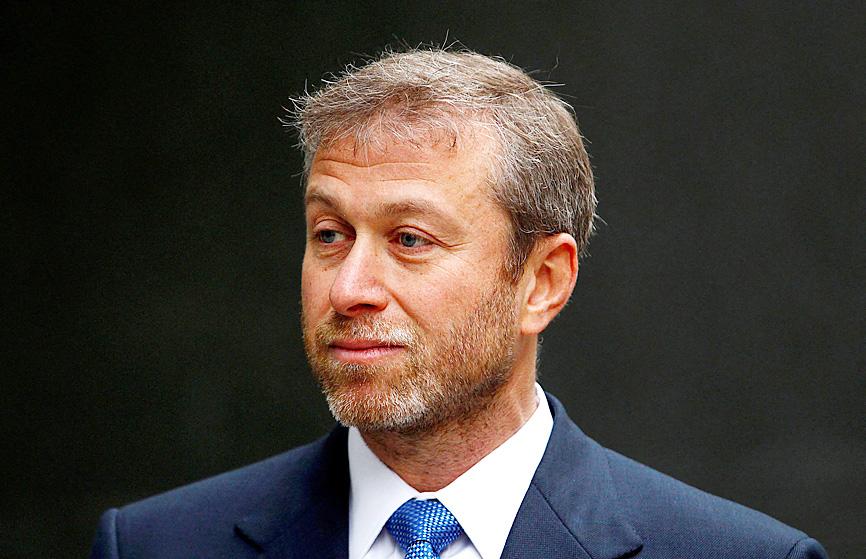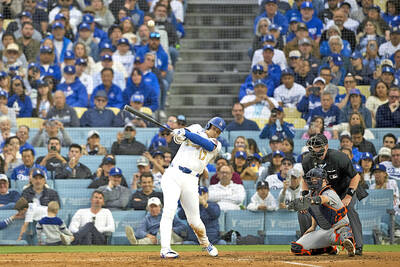Lavish spending, sustained only by Roman Abramovich’s investment, funded Chelsea’s 21 trophies during his 19 years as owner. Now there are fears that the Premier League club could run out of money after the British government sanctioned the Russian oligarch and froze his assets.
A team who won the Champions League last year and were crowned world champions by FIFA a month ago have now had some banking facilities frozen with officials unable to use corporate credit cards while Barclaycard assesses what is permitted under government rules.
Chelsea are only allowed to continue operating and playing games under conditions set out by the government through a special license, with caps on spending and a prohibition on selling tickets, which will impair the cash flow for a club with a last published wage bill of almost £28 million (US$36 million) a month.

Photo: Reuters
Chelsea officials spent Friday in talks with the government to discuss how the club can continue to pay staff, operate Stamford Bridge on match days and ensure the club can be sold.
Abramovich had already announced plans to sell his trophy asset last week before he was sanctioned on Thursday over links to Russian President Vladimir Putin following the invasion of Ukraine.
The Raine Group, an investment bank, is working on the sale process on behalf of Abramovich, who remains owner of Chelsea.
He originally hoped to divert the proceeds into a new foundation for people affected by the war in Ukraine.
However, the government would only agree to a sale that does not see Abramovich benefit as the government tightens the screw on influential individuals it views as enabling Putin’s regime.
There are potential buyers waiting in the wings, including British property investor Nick Candy and Todd Boehly, a part owner of the MLB’s Los Angeles Dodgers.
“I would describe Chelsea as a distressed asset,” said Rob Wilson, a soccer finance expert from Sheffield Hallam University, “and the association that they’ve got with the owner is what’s distressing them.”
The only bright spots for the club on its second day as a sanctioned entity were that no more sponsors suspended deals after the jersey backer, communications firm Three, asked for its logo to be removed.
Jersey maker Nike was yet to halt its sponsorship.
Another sponsor, hotel search Web site Trivago, said it would remain sponsor of the training kits.
“We are looking forward to a transition of ownership as soon as possible and want to support the club in this process,” Trivago said. “We will provide any update to our business relationship if and when appropriate.”
The statement condemned the “unprovoked and catastrophic invasion of Ukraine” without naming Russia.
Booking travel is a looming challenge for Chelsea. The trip to France to play Lille OSC in the Champions League next week has already been bought, but the spending on travel to games after that has been capped at £20,000 by the government.
Chelsea can also only spend £500,000 on matchdays — starting today at home against Newcastle United in the Premier League, which the club has won five times under Abramovich.
The league title had been won only once in the 98 years before Abramovich bought the club in 2003.
There have been cumulative losses of about £900 million in almost two decades of Abramovich’s ownership, while annual revenue has grown from £110 million in 2003 to £435 million in the last financial year.
The way Abramovich propped up the Blues with his cash to turn them into a force, in part for personal status, is similar to how other oligarchs paid WNBA players such as Brittney Griner US$1 million to play for their company-sponsored teams in Russia.
Chelsea has been reliant on the £1.5 billion of loans that Abramovich has pumped into the club, which he has said he will not ask to be repaid.
The latest reported cash reserves for Chelsea’s parent company were only £17.7 million.
The club can no longer even sell merchandise with its store closing within hours of the sanctioning announcement on Thursday.

Shohei Ohtani and Clayton Kershaw on Friday joined their Los Angeles Dodgers teammates in sticking their fists out to show off their glittering World Series rings at a ceremony. “There’s just a lot of excitement, probably more than I can ever recall with the Dodger fan base and our players,” manager Dave Roberts said before Los Angeles rallied to beat the Detroit Tigers 8-5 in 10 innings. “What a way to cap off the first two days of celebrations,” Roberts said afterward. “By far the best opening week I’ve ever experienced. I just couldn’t have scripted it any better.” A choir in the

After fleeing Sudan when civil war erupted, Al-Hilal captain Mohamed Abdelrahman and his teammates have defied the odds to reach the CAF Champions League quarter-finals. They are today to face title-holders Al-Ahly of Egypt in Cairo, with the return match in the Mauritanian capital, Nouakchott, on Tuesday next week. Al-Hilal and biggest domestic rivals Al-Merrikh relocated to Mauritania after a power struggle broke out in April 2023 between the Sudanese army and a paramilitary force. The civil war has claimed tens of thousands of lives and displaced more than 12 million people, according to the UN. The Democratic Republic of the Congo-born Al-Hilal

The famously raucous Hong Kong Sevens are to start today in a big test for a shiny new stadium at the heart of a major US$3.85 billion sports park in the territory. Officials are keeping their fingers crossed that the premier event in Hong Kong’s sporting and social calendar goes off without a hitch at the 50,000-seat Kai Tak Stadium. They hope to entice major European soccer teams to visit in the next few months, with reports in December last year saying that Liverpool were in talks about a pre-season tour. Coldplay are to perform there next month, all part of Hong Kong’s

Shohei Ohtani, Teoscar Hernandez and Tommy Edman on Thursday smashed home runs to give the reigning World Series champions the Los Angeles Dodgers a 5-4 victory over Detroit on the MLB’s opening day in the US. The Dodgers, who won two season-opening games in Tokyo last week, raised their championship banner on a day when 28 clubs launched the season in the US. Dodgers manager Dave Roberts shuffled his batting lineup with all four leadoff hitters finally healthy as Ohtani was followed by Mookie Betts, then Hernandez and Freddie Freeman in the cleanup spot, switching places with Hernandez. “There’s a Teoscar tax to